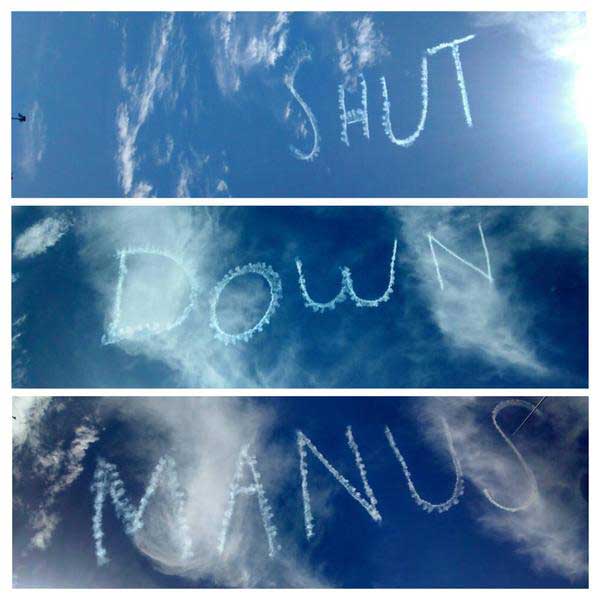When it comes to asylum seeker and refugee policy, the Coalition has always believed attack is the best form of defence.
As the fallout from the devastating Australian Human Rights Commission investigation into children in detention shows, the government is happy to use a dual tactic of demonisation and distraction to wash away the issues that independent critiques reveal.
In spite of the fact Professor Gillian Triggs and her team produced a report showing the deep flaws in both Labor and Coalition policy, the government used all resources available to it – including the staff of the Australian Newspaper – to try and destroy the Commission President, pressuring her to resign, and asking her to apologise for the impertinence of pointing out the bleeding obvious: that detaining children arbitrarily and indefinitely has a negative impact on them.
It’s therefore no surprise that since coming to power the Abbott government has positioned itself as a champion of refugee rights, arguing aggressively that its policies have stopped the boats and thus prevented detention centres from burgeoning further. The policy of deterrence – of extreme cruelty to those in detention, in order to prevent further refugees from fleeing to Australia – is presented as charitable act. Attack as the best defence.
But as today reminds us, that policy has just caused suffering, and it has been fatal.
On February 17, last year Iranian man Reza Barati was murdered in the Manus Island detention centre. He didn’t suffer the slow psychological demise that is characteristic of indefinite detention – he was savagely beaten to death, most likely by the people who were paid to protect him.
Not that we know for sure, however, as no-one has yet been jailed over the murder.
In August, another young man held in the centre died. The medical report on Hamid Kehazaei’s death has not been released, but from a series of leaks we know, broadly, what happened.
It appears the tragedy could have been easily prevented, and would have been, if the young man had been held in a facility with access to basic medication, and basic sanitation.
Deaths like these are the direct result of deterrence. If you’re trying to stop people from fleeing Afghanistan, Iran, Iraq, Burma, or Sri Lanka, you really have to put the fear of death into them, a fear greater than the fear of death they fled.
But this calculated cruelty has a purpose, right? The numbers in the camp are surely running down?
Not quite.
While the number of people held in mainland detention is declining – especially the number of children – a look at the Department’s immigration detention figures shows the number of men held on Manus remains only slightly lower than when the Coalition came to power in September 2013.
The highlighted bar is the month during which Barati was killed, and the chart reveals a build-up in numbers before the two nights of protests that resulted in his murder.
The Coalition has run down the number in the centre since then, but slowly, and painfully. Refugee advocates claim those asylum seekers who faced anything less than immediate persecution have now voluntarily returned home.
It seems to be these people who account for most of the declining Manus detention population.
The number who have actually been processed and released from detention remains tiny, with just 50 men granted refugee status as of late January.
Their future in PNG is unsecured, and their prospects are poor, much like those now being released onto Nauru, who will only be permitted to reside on the tiny Pacific nation for five years before facing removal to God knows where. On that island, there are children and families among the waiting.
One year on from the death of Reza Barati, there is no reason to think the incident won’t be repeated. Tensions in the centre remain high, and as has been well documented, self-harm, protest, and the repression of public shows of anger are constants.
While the Coalition has crowned itself as a champion of human rights for releasing asylum seekers from detention, it has left those on Manus to remain out of sight and out of mind.
If its lip service to human rights was anything more than an aggressive offense, it would force PNG to release all those men immediately, and give their refugee claims a fair hearing.

Donate To New Matilda
New Matilda is a small, independent media outlet. We survive through reader contributions, and never losing a lawsuit. If you got something from this article, giving something back helps us to continue speaking truth to power. Every little bit counts.



